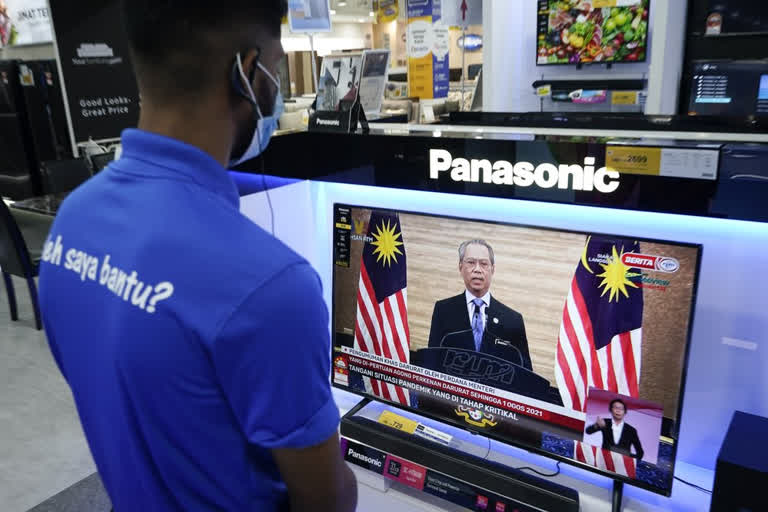Kuala Lumpur:Malaysia has declared a coronavirus emergency that will suspend Parliament at least until August and halt any bids to seek a general election, but critics charged it was a political move by embattled Prime Minister Muhyiddin Yassin to stay in power.
In a televised speech, Muhyiddin assured citizens that the emergency was “not a military coup and a curfew will not be enforced.” He said his civilian government will remain in charge and that Malaysia is still “open for business.”
The emergency declaration came just a day before millions of people in Malaysia’s biggest city, Kuala Lumpur, the administrative capital, Putrajaya, and five high-risk states return to a near-lockdown for two weeks.
Opposition lawmakers, analysts and critics said the emergency appeared aimed at halting the collapse of Muhyiddin’s government amid threats by the United Malays National Organization, the largest party in his ruling coalition, to withdraw support to force an early general election.
Watch: Japan declares state of emergency in Tokyo, PM Suga vows to stage Olympics
“If this is the true underlying reason, the declaration of a national emergency is not only an overkill but an abuse of executive power that places the country at great peril,” according to a joint statement by activist groups and nongovernmental organizations.
Muhyiddin took power in March after instigating the collapse of the reformist alliance that won 2018 elections and joined with the opposition to form a Malay-centric government. But his government is shaky with a razor-thin majority in Parliament.
A second UMNO lawmaker, Nazri Aziz, announced later Tuesday that he woúld no longer support Muhyiddin. With more UMNO lawmakers expected to follow suit, he said the emergency was an admission of defeat by Muhyiddin. Many in the UMNO are unhappy that the party is playing second fiddle to Muhyiddin’s own Malay party.
Muhyiddin said the national Parliament and all state legislatures will be suspended, and that no election is allowed during the period. He pledged to call a general election once the crisis has eased and it is safe to hold polls.
Oh Ei Sun, a senior fellow at the Singapore Institute of International Affairs, said most people could understand the need for movement curbs but an emergency declaration appeared overblown as it is unclear how that could help slow the virus spread.
“It’s very clearly a political move from the Muhyiddin side to preempt political challenges from both his rivals in his ruling coalition as well as the opposition,” he said.
